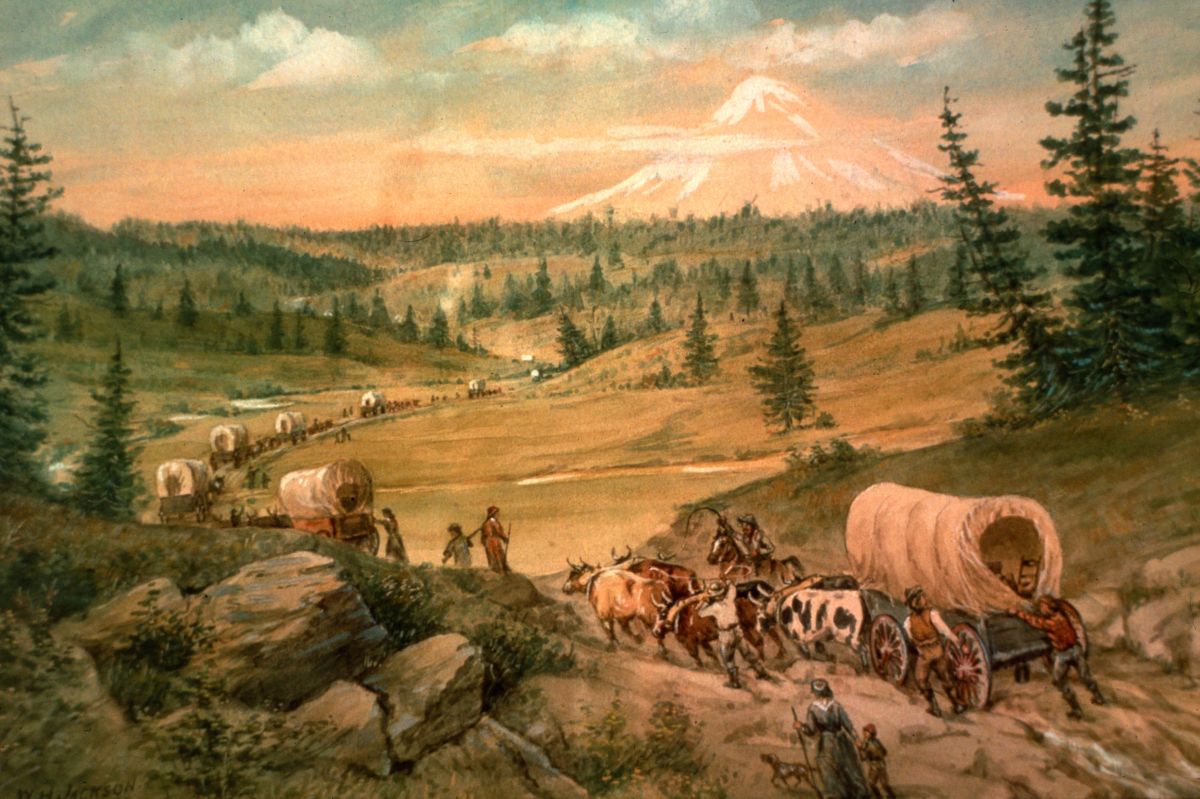On May 22, 1843, 1,000 people left Independence, kickstarting the Great Emigration.
On this day, 1,000 men, women, and children left the town of Independence, Missouri, in a wagon train, hoping to find plentiful farmland that they could take for themselves and the opportunity to live life on their own terms. The first wagon train had left for the Oregon Territory. The Great Emigration had begun in earnest.
This wagon train wasn’t the first group of pioneers to head west, looking for their fortunes, but it was the largest and most well-organized group of them at the time. The Oregon Territory had been inhabited by Native Americans for tens of thousands of years, of course. It had also been inhabited for a few decades by American missionaries and fur trappers. They sent back word about the great agricultural potential of Oregonian land, and it soon became a popular topic of conversation back East. In 1841, a group of 70 pioneers set out along the route blazed by the traders and missionaries. The next year, another 100 followed them.
This trail was also followed by the wagon train of pioneers that set out in 1843. It was so large and well organized because the western part of the country, the region currently known as the Midwest, was undergoing severe economic depression. A lot of people came to believe that their only hope of a prosperous future lay in striking out and away from the country and setting up on their own in the “unowned” territories to the west.
The first part of their journey over the Great Plains was pretty easy. The train, some 100 wagons long, drew itself into a circle every night so they could pen their horses, cattle, and oxen up inside. During the day it moved slowly, covering less ground than a healthy adult could walk in a day. Things got worse when it hit the Rocky Mountains. The passes were too steep for some of the wagons, causing them to overturn or break away and roll out of control downhill. Still, the great majority of the pioneers survived to reach the fertile lands of the Oregon Territory later that year.

